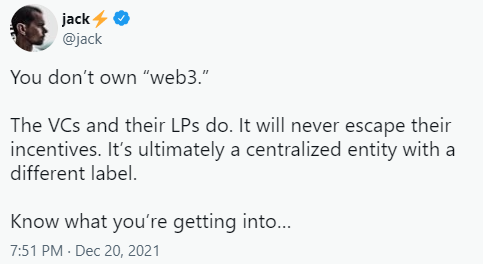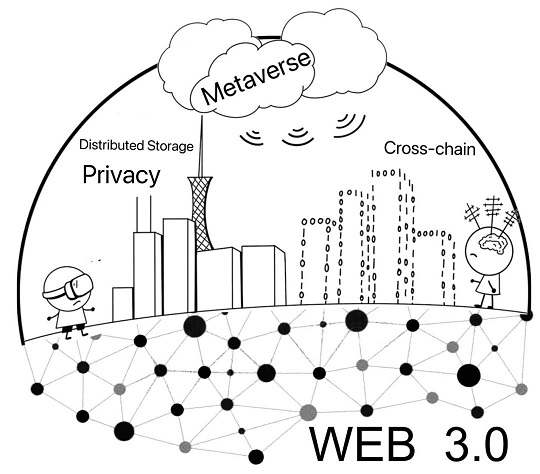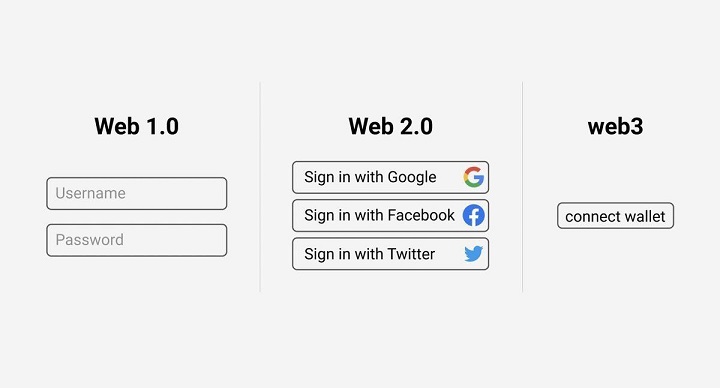Fiat currencies
Crypto Currencies
No results for ""
We couldn't find anything matching your search.Try again with a different term.
What's the Difference between Web 2.0 and Web 3.0?
Web3 has recently burst into the mainstream consciousness, with industry leaders across the traditional tech sector and blockchain ecosystem weighing in with a wide range of perspectives on the past and future of the Internet. Especially following Jack Dorsey's comment in December, 2021 which provoked an outcry in the cryptocurrency world. ts valuation will be one of the most contentious topics in 2022, especially in light of Jack Dorsey's December remark, which sparked a stir in the cryptocurrency industry.
This article will explore their definitions, differences, and many exciting and new Web3 developments.
What is Web 2.0?
Web 2.0, sometimes known as Web 2, is the interactive and social web.
Web2 often comprises of programs designed to allow anybody to easily become a creator, since the previous version of the internet was mostly occupied by developers who were the primary actors in content creation.
Web2's major benefits for end-users include user-generated content, simplicity of use, interactive culture, direct user engagement, and interoperability (compatible with other goods, systems, and devices).
For the first time, anybody could generate any kind of material, submit a video or photo, write and publish books, comment on other people's postings, and make it available to millions of people. Social media networks were created, and they will continue to be the stars of the internet for many years to come.
A new method of communication is possible because to innovative user-friendly experiences. In return for consumers' personal data, businesses that supply information and communication platforms began to thrive. YouTube, Facebook, and Twitter are just a few of the most well-known and profitable Web2 firms.
Everywhere on the planet, the dynamic web with increased social and cooperative connection was welcomed. However, there was a catch: in return for direct involvement in the network, you had to provide personal and private data.

What is Web 3.0?
Web3 is a hazy phrase that might imply various things to different people. It envisions an internet that is less reliant on huge corporations such as Google or Facebook and more reliant on decentralized networks. The goal behind it is to democratize the internet rather than the current corporatization, in which these huge businesses effectively rule the online.
To remove major tech corporations' monopoly on the internet and restore it to average people, Web 3.0 would rely on blockchain technology as well as artificial intelligence. Though it's a bit of a utopia, it's an appealing concept for anybody concerned about the power of large firms like Meta(Facebook) and their ambition to control how people experience the internet, especially because most of the technology required for Web3 is still in its infancy.

Differences between Web 2.0 and Web 3.0 standards
While sharing material or focusing on communities, Web 2.0 makes use of read-write web, web apps, blogs, viral media, rich media, tagging, and Folksonomy. Semantic web, widgets, drag-and-drop mashups, economy or user behavior, user interaction, ads, focuses on individuals, and consolidates dynamic material are all part of the Web 3.0 standard.
Web 2.0 supports data sharing, and great examples of Web 2.0 applications include Blogger, Facebook, Youtube, and others. The semantic web 3.0 approach allows users to interact with widgets as well as knowledge sources like DBpedia and YAGO. Because Web 3.0 provides users with personalized help and data tailored to their specific requirements, it's clear that Web 3.0 has a bright future ahead of it.
Will artificial intelligence be used to extend the semantic web notion in Web 3.0? There is a lot of research going on right now to produce software that uses reasoning based on intelligent agents as well as description logic. The programs use a set of rules to do reasoning and logical processes, expressing the logical link between data on the internet and its ideas.
The Future of Web3
In truth, both sides of the Web2 vs. Web3 argument have a future role to play. Instead of wagering on which battleship would sink the other, perhaps we might gladly embrace the better features of Web3 that can address some of Web2's shortcomings. After all, Web3 is only another important component of the eventual metaverse.
Web3 has the potential to improve the internet, and the resistance we've seen so far isn't going to stop it. Attempting to put a stop to a concept that has outlived its usefulness or to suffocate the entrepreneurial spirit of a worldwide movement where people may develop billion-dollar firms is unlikely to succeed.
$30,000 Deposit Blast-Off
Sponsored
Earn up to $30,000 when you make your first deposit and trade on Bybit! Register Now!